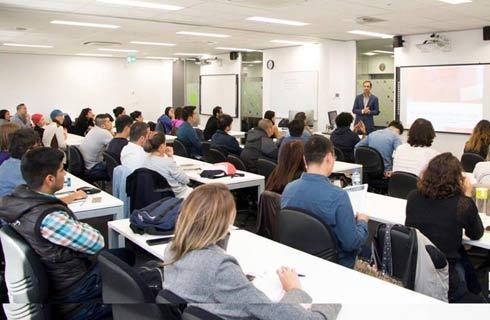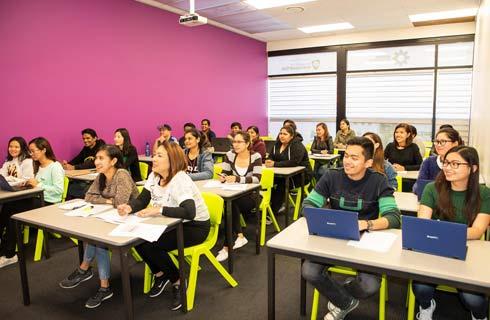Bachelor of Information and Communication Technology

学历文凭
Bachelor Degree

专业院系
Computing

开学时间

课程时长

课程学费

国际学生入学条件
Students must have completed High School or an equivalent qualification.
English language requirement:
IELTS - 6.0 (no individual band below 6.0)
TOEFL iBT - 64 (no less than 13 in reading, 12 in listening, 18 in speaking, 21 in writing
PTE Academic - 50 with no communicative skill score less than 50
SPM - C
IDP—雅思考试联合主办方

雅思考试总分
6.0
- 雅思总分:6
- 托福网考总分:64
- 托福笔试总分:160
- 其他语言考试:PTE Academic - 50 with no communicative skill score less than 50
CRICOS代码:
申请截止日期: 请与IDP联系 以获取详细信息。
课程简介
相关申请
 预科
预科 奖学金
奖学金 实习机会
实习机会 在校学习
在校学习 跨境学习
跨境学习 校园授课-线上开始
校园授课-线上开始 在线/远程学习
在线/远程学习
开学时间&学费
学费信息仅供参考,请与IDP联系以获取详细信息
| 开学时间 | 时长 | 学费 | 地点 |
|---|
本校相关课程

Bachelor of Business
学历文凭
Bachelor Degree
开学日期
课程费用总额


Bachelor of Business (Accounting)
学历文凭
Bachelor Degree
开学日期
课程费用总额


Bachelor of Business (Accounting and Finance)
学历文凭
Bachelor Degree
开学日期
课程费用总额


Bachelor of Business (Finance)
学历文凭
Bachelor Degree
开学日期
课程费用总额


Bachelor of Business (Human Resource Management)
学历文凭
Bachelor Degree
开学日期
课程费用总额


Bachelor of Business (International Business)
学历文凭
Bachelor Degree
开学日期
课程费用总额

其他相关课程

运动与运动科学学士/信息技术学士
 堪培拉大学
堪培拉大学泰晤士高等教育世界大学排名:470
学历文凭
Dual Degree
开学日期
课程费用总额


综合哲学博士(信息科学)
 伍伦贡大学
伍伦贡大学泰晤士高等教育世界大学排名:247
学历文凭
Ph.D.
开学日期
课程费用总额


信息技术学士(荣誉学位)
 伍伦贡大学
伍伦贡大学泰晤士高等教育世界大学排名:247
学历文凭
Bachelor Degree with Honours
开学日期
课程费用总额


信息技术学士/商科学士
 纽卡斯尔大学
纽卡斯尔大学学历文凭
Dual Degree
开学日期
课程费用总额


游戏技术理学学士
 莫道克大学
莫道克大学泰晤士高等教育世界大学排名:438
学历文凭
Bachelor Degree
开学日期
课程费用总额


计算机与信息技术文凭
 安斯伯利学院
安斯伯利学院学历文凭
Diploma
开学日期
课程费用总额










